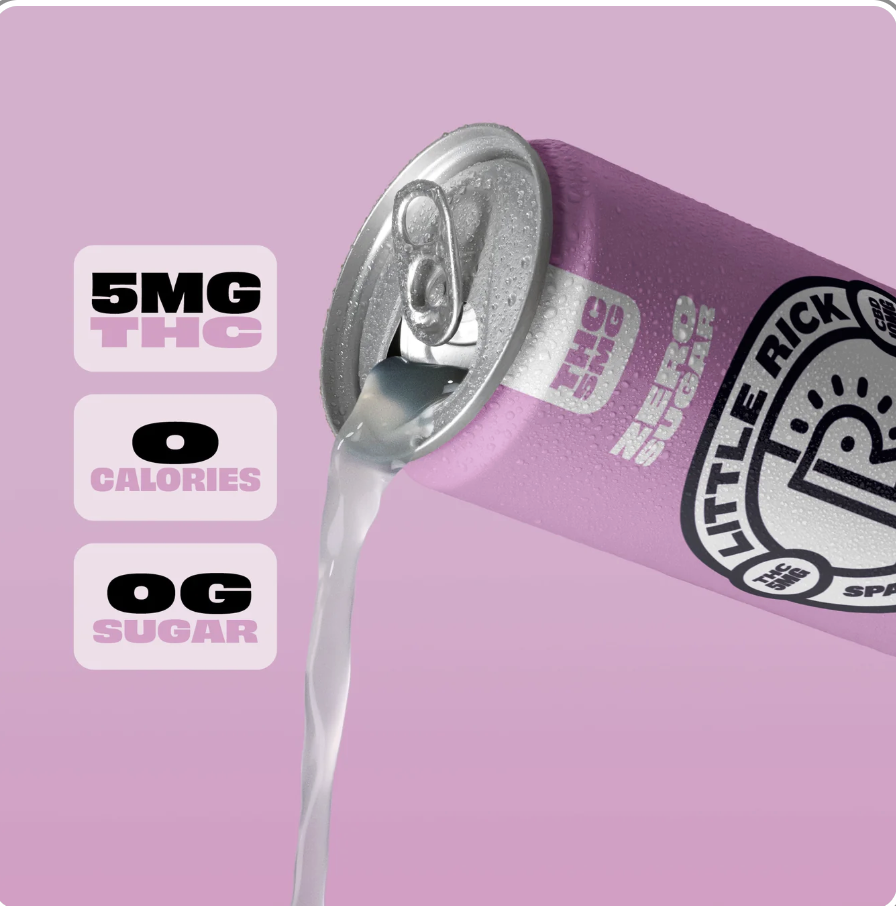THC Drinks vs Alcohol: Everything You Should Know First
Cannabis-infused drinks are no longer niche—they’re becoming a go-to choice for the sober-curious crowd and health-minded social drinkers. But what actually goes into a THC beverage, how does it compare to alcohol, and what do those “mg” numbers on the can mean? This guide breaks it all down: ingredients, effects, calories, safety, and more—so you know what to expect before you sip.
What Are Cannabis Drinks?
Cannabis drinks—also called THC beverages or hemp-infused seltzers—are regular drinks (sparkling water, soda, tea, juice) that include a measured dose of cannabis extract.
THC (Tetrahydrocannabinol): the active compound that creates a mild “high” or relaxed buzz.
CBD (Cannabidiol): a non-intoxicating compound that adds calming effects and can balance THC’s intensity.
“mg” on the label: the number of milligrams of THC or CBD in each can or serving.
Example: 5 mg THC ≈ a light, wine-like buzz for most first-time adult users.
Example: 2 mg THC = micro-dose; barely noticeable but may ease social tension.
Example: 10 mg+ THC = stronger effects, best for experienced consumers.
Most ready-to-drink cans contain 2–15 mg THC—designed for a mild, controllable effect.
Why Cannabis Drinks Are Gaining Attention
Sober-curious movement: Gen Z and many millennials are drinking 20–30 % less alcohol than previous generations.
Wellness focus: lower calories and sugar than beer, wine, or cocktails.
Hangover-free: unlike alcohol, THC beverages usually don’t cause next-day headaches or dehydration.
Clear dosing: every can lists exactly how many milligrams of THC or CBD it contains, making the experience more predictable.
Market growth: the cannabis-infused beverage market is expected to rise from $2 billion in 2023 to $117 billion by 2032.
THC Drinks vs Alcohol
Cannabis drinks—often made with a low dose of THC or a THC : CBD blend—deliver a milder, calmer buzz at around 2–5 mg of THC per serving, while traditional alcohol tends to create a faster-onset, less-predictable intoxication.
Most cannabis seltzers have fewer than 40 calories per can and usually contain less sugar than beer, wine, or cocktails. Hangovers are rare at low THC doses, whereas alcohol’s dehydrating effects commonly lead to next-day fatigue and headaches. The effects of a cannabis beverage typically start 20–45 minutes after drinking and can last two to four hours, compared to alcohol’s near-immediate onset that fades within one to three hours.
Importantly, cannabis beverages at regulated serving sizes have no known lethal overdose risk, while excessive alcohol consumption can lead to poisoning and serious health consequences.
How to Read THC Labels
Check the THC amount (mg): start with 2–5 mg if you’re new.
Look for THC : CBD ratios: balanced drinks (like 1:1) feel smoother and less intense.
Serving size: most cans list total THC per can—don’t assume all brands use the same serving size.
Flavor style: fruity, herbal, or hemp-forward—choose your preference.
Safety & Responsible Consumption
Start Low, Go Slow: recommend 2–5 mg THC for newcomers; wait at least 30–60 minutes before offering a second serving.
Do not mix with alcohol in the same drink.
Provide non-infused options for drivers and non-consumers.
Advise guests that individual reactions vary depending on weight, metabolism, and tolerance.
Flavor Trends: From Masking to Highlighting Hemp
Early brands hid hemp’s earthy taste under heavy fruit or sugar.
Newer craft-style beverages highlight terpenes—natural aromatic compounds that give cannabis notes of citrus, pine, or spice.
For many modern drinkers, these herbal flavors make cannabis beverages feel more like craft beer or botanical gin than soda.
Looking Ahead: A New Beverage Category
Craft beer disrupted menus in the 2000s. Hard seltzer did it again in the 2010s.
Cannabis-infused drinks are set to reshape beverage menus between 2025-2030.
Early adopters who understand dosage, safety, and flavor trends can attract health-minded, sober-curious, and next-generation social drinkers.
Final Note
Cannabis-infused drinks are no longer niche; they’re becoming a mainstream alcohol-alternative.
To see real third-party lab results for THC and CBD levels in popular cannabis beverages, visit Little Rick’s official lab-testing page — an Great way to prove the product’s quality and standards.
Disclaimer
This article is written for informational purposes only and is based mainly on U.S. regulations and market data at the time of writing.
Cannabis laws vary widely by country, state, and even city, including rules on age limits, THC dosage, product labeling, and retail licensing.
Before buying, stocking, or serving cannabis-infused drinks, always check the specific laws and requirements in your country and local jurisdiction.
For accurate product testing and safety details, you can review Little Rick’s official lab reports here.
If you’d like to explore the topic further, see the “Useful Reading” links below for trusted third-party resources.
Special thanks to Little Rick for supporting the creation of this informational article.
Want to Read More About Cannabis Drinks?
If you’d like to dive deeper into the science, safety, and trends shaping cannabis-infused beverages, here are some trusted resources worth exploring:
Forbes: Move Over Red Bull: Cannabis-Infused Energy Drink – Launch of cannabis energy drinks and their role as alcohol alternatives.
The New York Times (via Food & Wine): Celebrities Are Backing THC Drinks — Here Are the Ones Worth Trying – How celebrity-backed THC brands are taking the spotlight.
Harvard Health Publishing: The Endocannabinoid System: Essential and Mysterious – A primer on how THC and CBD interact with the body.
Healthline: 6 CBD Benefits and Uses (Plus Side Effects) – Explains the wellness potential of CBD found in many drinks.
CNET: THC Drinks vs. Alcohol: We Asked an Expert Which Is Healthier – A straight comparison of health impacts.
Bloomberg: Competition Brews for Cannabis-Infused Coffee and Tea – Innovation in cannabis coffee and tea.
The Wall Street Journal (via partner site): CBD and THC Beverages: A Natural Solution for Stress Relief – How infused drinks are being used to unwind.
U.S. FDA: Warning Letters for Cannabis-Derived Products – Regulatory updates and safety oversight.
Fortune Business Insights: Cannabis Beverages Market Size, Share, Trends 2032 – Market growth data and industry trends.




